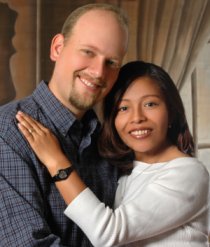By: Craig McGlassion, Lead Pastor – Paradox Church
I planted a church just outside Detroit that will turn 5 years old this Fall. While there are many lessons I am learning, there is one that I wish I would have better understood before starting the church.
I think it was Bill Hybels that made famous the concept of evaluating potential staff hires on the “3 Cs”,
• Character
• Competence
• Chemistry
A local network of Pastors that I am apart of added another “C” for “call”. I used this list when evaluating my launch team members since I realized they were going to effect the personality and direction of the church in its infancy every bit as much as paid staff members would later on.
The list seemed to help me distinguish early on who to go after and invite on our journey, but now, almost 5 years in, I can see that nearly all of my mistakes in the development of this team were in areas where team members either did not share missional alignment or relational alignment – and most often it was missional. It seemed like we shared one or the other, but seldom both.

Missional alignment is when we all clearly understand what we are trying to do, why it needs to be done, and we’re all willing to sacrifice for it. It’s amazing how much you can paint the vision and yet the picture in other people’s heads isn’t the same picture as in your own. I wish I would have done a better job of making sure this picture was the same for all of us.
Relational alignment may seem more obvious; we all get along and love each other. However, having planted a church where I grew up and also previously did ministry for 10 years, I tended to draw a lot of friends that I got along with and had a lot of fun with. The problem is when the missional alignment wasn’t there, the relationships became stressed and there began to be fighting for different directions for the church and battle for authority.
Eighteen months ago our young church took a severe black eye over this, but as we recover, I’m watching a new leadership team that unlike ever before is aligned both missionally AND relationally. The leadership is healthier, happier, and producing tons of kingdom impact. The real difference is that my leader’s friendships are pouring out of our missional alignment. If I had understood this concept better, I wouldn’t have looked to old friendships to the neglect of new relationships that had a clear shared understanding and commitment to the mission. Missional alignment AND relational alignment, one without the other is a ticking bomb.
You can learn more about Paradox at: http://www.paradoxchurch.com/
You can follow Craig on Twitter: http://twitter.com/craigmcglassion



